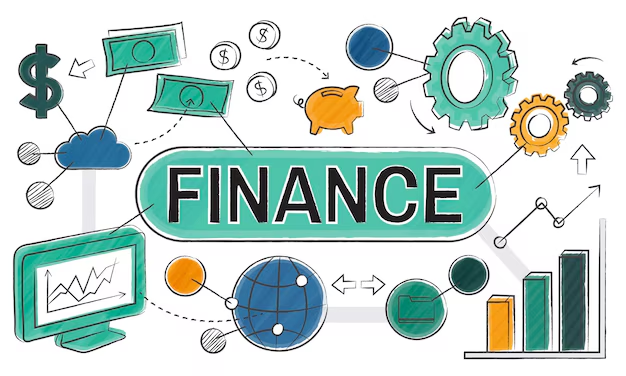Financial Literacy For The Modern World: Essential Skills For Success
In an age of increasing complexity and global interconnectivity, financial literacy has never been more crucial. Whether you’re navigating a personal budget, deciding on investment strategies, or planning for retirement, understanding the basic principles of finance is essential for making informed decisions that contribute to long-term financial security.
Financial literacy refers to the knowledge and skills necessary to make informed and effective financial decisions. It involves understanding key concepts such as budgeting, saving, investing, and managing debt. With a rapidly changing financial landscape, the ability to grasp these concepts is more critical than ever. In this article, we will discuss the importance of financial literacy in the modern world, identify the key skills needed for financial success, and offer practical strategies to master these skills.
Chapter 1: The Core Principles of Financial Literacy
1.1 Budgeting: The Foundation of Financial Control
At the core of financial literacy lies budgeting, which is the process of creating a plan to manage your income and expenses. Budgeting helps you control your spending, avoid debt, and ensure that you’re saving for future goals. Without a solid budget, it’s easy to lose track of where your money is going, leading to financial stress and missed opportunities.
Key Steps to Budgeting:
- Track Your Expenses: Record all your monthly expenses, including fixed costs (e.g., rent, utilities) and variable costs (e.g., groceries, entertainment).
- Set Realistic Goals: Identify your financial priorities, such as saving for an emergency fund, paying off debt, or building wealth through investments.
- Use the 50/30/20 Rule: A simple guideline where 50% of your income goes toward needs, 30% toward wants, and 20% toward savings and debt repayment.
By creating a budget and sticking to it, you gain control over your financial life and set the stage for building wealth.
1.2 Saving: Building a Cushion for the Unexpected
Saving money is a fundamental part of financial literacy. It provides a cushion for emergencies, helps you plan for future goals, and can serve as the foundation for building wealth through investments.
Key Saving Strategies:
- Establish an Emergency Fund: Aim for saving 3 to 6 months’ worth of living expenses in a liquid, easily accessible account. This fund will help you cover unexpected expenses like medical bills, car repairs, or job loss without going into debt.
- Automate Savings: Set up automatic transfers from your checking account to a savings account, so you consistently save without thinking about it. This is particularly effective for long-term goals like retirement.
- Save for Specific Goals: Allocate savings toward specific goals (e.g., down payment on a house, education, vacation), so you can track your progress and remain motivated.
Saving regularly and building up an emergency fund helps you prepare for the unexpected and provides the financial foundation needed for wealth-building.
1.3 Understanding Debt: Borrowing Responsibly
In today’s world, debt is a part of life for many people, whether it’s student loans, mortgages, or credit card balances. However, it’s essential to understand how debt works and how to manage it responsibly.
Key Principles of Debt Management:
- High-Interest Debt is Dangerous: Credit card debt typically carries high interest rates, which can quickly accumulate. Paying off high-interest debt should be a priority.
- Use Debt for Growth: When used responsibly, debt can be an effective tool for building wealth. Mortgages and student loans are examples of “good debt” that can lead to increased wealth over time.
- Debt-to-Income Ratio: This is a critical indicator of financial health. It’s important to keep your total debt payments manageable compared to your income.
By understanding how to manage debt effectively, you can avoid the financial pitfalls that come with overspending and interest accumulation while using debt strategically to your advantage.
Chapter 2: Investing: Growing Your Money for the Future
2.1 The Basics of Investing
Investing allows your money to grow over time, increasing your wealth in ways that savings alone cannot. While saving is essential for short-term goals and emergencies, investing is the key to building long-term wealth.
Key Investment Vehicles:
- Stocks: Buying shares of publicly traded companies allows you to participate in their growth. Stocks typically provide higher returns than other investments but come with higher risk.
- Bonds: Bonds are debt securities issued by corporations or governments. They are generally safer than stocks but provide lower returns.
- Mutual Funds & ETFs: These are pooled investment vehicles that allow you to invest in a diversified set of assets. ETFs (exchange-traded funds) are similar to mutual funds but are traded like stocks on exchanges.
Risk and Reward: One of the core principles of investing is understanding the balance between risk and reward. While riskier investments may offer higher returns, they also carry a greater chance of loss. Understanding your risk tolerance and diversifying your portfolio can help manage these risks.
2.2 The Power of Compound Interest
One of the most important concepts in investing is compound interest, which refers to the process of earning interest on both your initial investment and the interest that accumulates over time. This exponential growth can significantly boost your wealth if you invest early and allow your money to grow over the long term.
The Formula for Compound Interest:
A = P(1 + r/n)^(nt)
Where:
- A is the amount of money accumulated after interest.
- P is the principal amount (the initial investment).
- r is the annual interest rate (decimal).
- n is the number of times interest is compounded per year.
- t is the number of years the money is invested.
Investing early and reinvesting your earnings allows you to harness the power of compound interest, which is why starting as early as possible is crucial for building wealth.
2.3 Retirement Planning
Planning for retirement is one of the most important financial decisions you’ll make. With longer life expectancies and changing social security benefits, it’s essential to have a clear plan for your future.
Key Retirement Accounts:
- 401(k) and IRA: These are tax-advantaged retirement accounts that allow you to invest money for retirement while benefiting from tax breaks. Employers may also offer matching contributions to 401(k) plans, providing additional free money.
- Roth IRA: Unlike traditional IRAs, contributions to a Roth IRA are made with after-tax money, but qualified withdrawals are tax-free. This can be an attractive option for individuals who expect to be in a higher tax bracket in retirement.
By regularly contributing to a retirement account and making smart investment choices, you can ensure that you’ll have enough money to live comfortably in retirement.
Chapter 3: Navigating Financial Technology
3.1 FinTech: The Future of Finance
Financial technology (FinTech) is revolutionizing the way people manage their money. From digital wallets to peer-to-peer lending, new technology is reshaping personal finance. Understanding how to use FinTech tools can improve your financial management and help you stay organized.
Popular FinTech Tools:
- Budgeting Apps: Tools like Mint, YNAB (You Need a Budget), and Personal Capital can help track your spending, create budgets, and monitor investment accounts.
- Robo-Advisors: Services like Betterment and Wealthfront use algorithms to offer personalized investment advice with lower fees than traditional financial advisors.
- Peer-to-Peer Lending: Platforms like LendingClub allow individuals to lend money directly to borrowers, bypassing traditional banks and offering potentially higher returns.
By staying informed about the latest FinTech tools and incorporating them into your financial routine, you can make managing your finances more efficient and effective.
3.2 Cybersecurity: Protecting Your Financial Data
With increasing digitization comes the risk of cyber threats. Protecting your financial information from identity theft, fraud, and hacking is a vital part of modern financial literacy.
Key Cybersecurity Tips:
- Use Strong Passwords: Ensure that all your financial accounts are protected with strong, unique passwords and two-factor authentication when available.
- Monitor Your Accounts: Regularly check your bank and investment accounts for any unauthorized activity.
- Be Wary of Phishing Scams: Always verify the source before clicking on links or sharing personal information.
Being proactive about cybersecurity is an essential skill in the digital age, helping you safeguard your hard-earned wealth.
Conclusion: Financial Literacy is Empowerment
In today’s world, financial literacy is not just a nice-to-have skill—it’s a necessity. Whether you’re navigating the complexities of budgeting, building wealth through investing, managing debt, or planning for retirement, having a strong foundation in personal finance will empower you to make smarter financial decisions.
The skills and knowledge discussed in this article are the building blocks of financial success. By understanding and applying these concepts, you’ll be better equipped to secure your financial future, achieve your goals, and make informed decisions that positively impact your life.
Key Takeaways
- Budgeting is the foundation of financial control, helping you track income and expenses while working toward financial goals.
- Saving consistently is essential for building an emergency fund and planning for both short- and long-term goals.
- Debt management is crucial to avoid financial stress; focus on paying off high-interest debt first and using debt responsibly.
- Investing in stocks, bonds, and retirement accounts is vital for growing wealth over time and taking advantage of compound interest.
- Understanding FinTech tools and protecting your financial data through cybersecurity measures will keep you ahead in the modern financial world.

